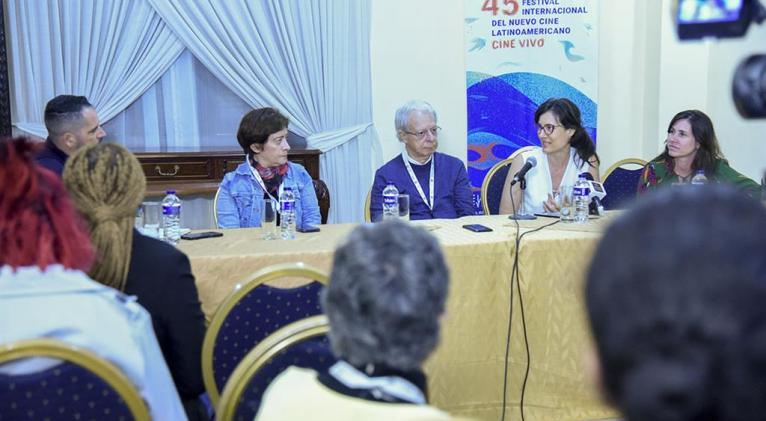Cuba: Frei Betto in film, literature and audiovisuals hand in hand
especiales

Havana’s International Film Festival on Friday premiered the documentary "The head thinks where the feet tread: Frei Betto and grass-roots education" (2024), an approach to the career of the Brazilian intellectual and theologian.
Evanize Sydow directed, wrote the script for, produced and shot the one-hour documentary, which focus on one essential pillar of Betto’s work: gras-roots education, as a follow-up to the methodology of Brazilian pedagogue Paulo Freire.
The film delves into Betto’se vital approach to grass-roots education in Cuba, while simultaneously tracing the career of an entire generation of social activists, as part of a tour leading to the Rural Workers Movement called “Landless.”
According to Betto himself, the documentary came as a surprise to him, because for many years he refused to see his image in any film or television material.
For decades I refused to see my face in audiovisual media, perhaps because it is like a syndrome for writers to only appear behind the written word, he confessed.
I do not give importance to the figure, the essential thing for me is the reading of my texts; I do not want to be famous, I want my books to be, joked Betto.
I refused all the invitations that came to me, but in the wake of the digital revolution and other factors I decided to change my position, he specified. I am still a bit at odds with it, but it is an interesting project, he confessed.
According to Betto, “The head thinks where the feet tread: Frei Betto and popular education” began its journey when Evanize Sydow, its director, asked him many questions about his life for a documentation center in Brazil. “Sydow interviewed me for a long time for her institution, which keeps records of testimonies by Brazilian figures who – in the center’s view, have some historical significance.
Having agreed to the invitation, Sydow kept asking him questions about his career as a writer for three days in a row, after which the center decided to publish a bio-book, featuring a prologue by Fidel (Castro), he said.
It was not Fidel’s habit writing prologues for just anyone, so I felt much honored, he recalled.
The center went on to transform part of a book into a documentary and that audiovisual was multiplied by four documentaries and a fiction film.
From my point of view, it is a very well-made feature film, much to my surprise, because none of the directors had previous in filmmaking, said Betto.
Director Sydow said being in Cuba is a great opportunity to meet with high-level filmmakers, and added she plans to return in 2025 for a longer time here and to work on other audiovisual projects.














Add new comment